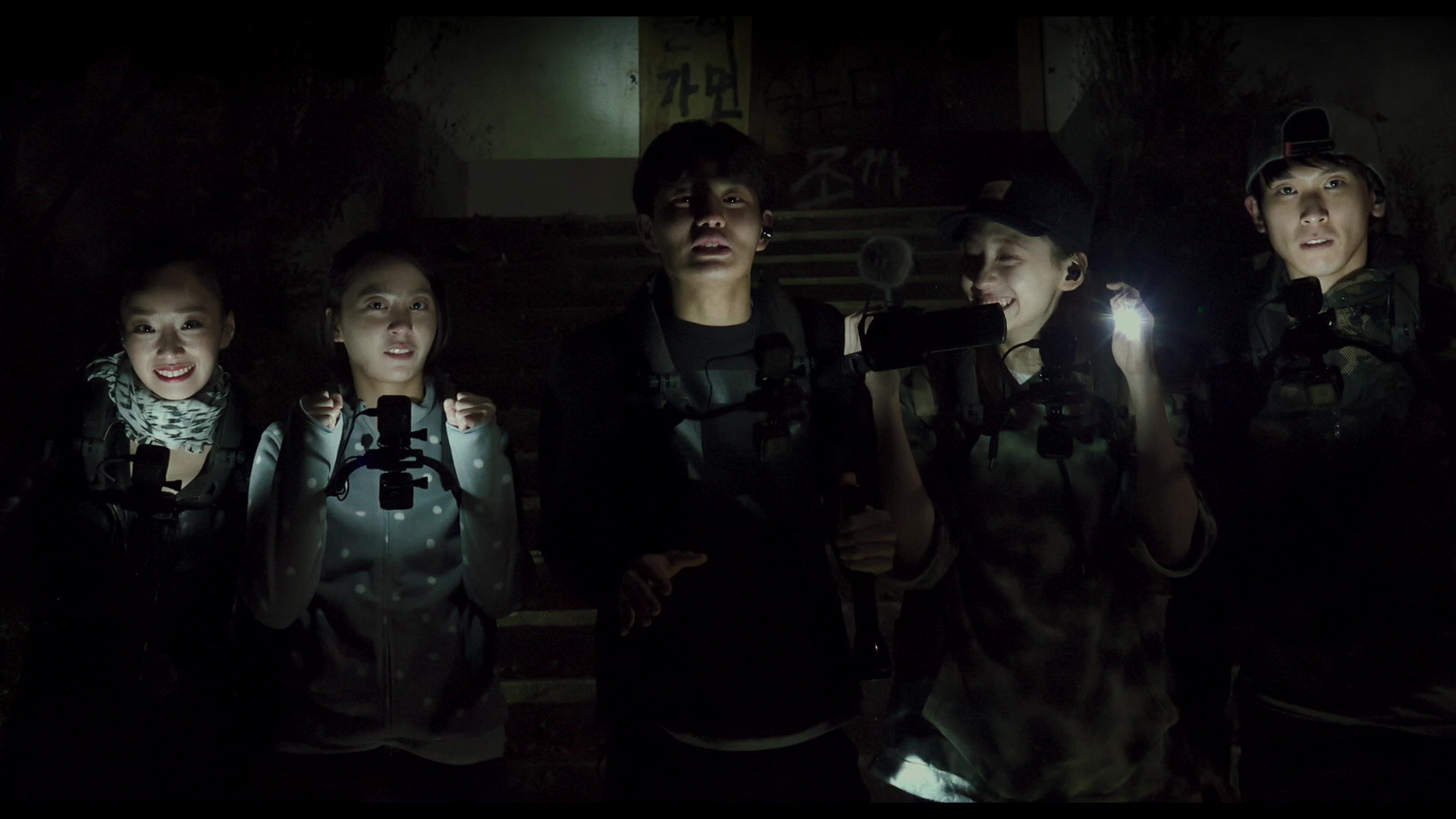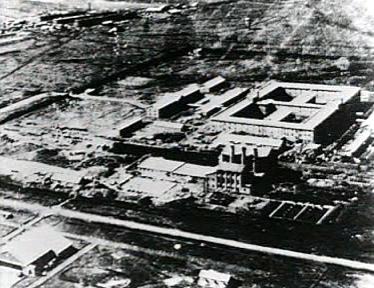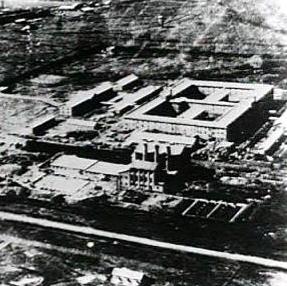Gonjiam – Haunted asylum

*Spoiler alert
Gonjiam is a found footage horror film by the South Korean director, Jung Bum Shik. The story begins with two high school boys who experienced spiritual encounters – sounds of a pingpong game though the hospital had been abandoned for years – and subsequently went missing in a former psychiatric hospital called Gonjiam — where rumour claims that the hospital director killed all her patients and disappeared after the hospital’s closing. The premise of the film continues as Youtuber Ha Joon assembles a team of six people to carry out a live-streamed exploration of Gonjiam, which would lead to their eventual death.
This is a fascinating horror film as the audience loses the bird’s eye view and instead gains an immersive experience in the environment and emotional ups and downs within the exploration team with the first person vlogging perspective. You never know what’s real, and what’s not.
At the same time, this movie generates real excitement for the brave souls as the Gonjiam hospital actually does exist in the real world. It is a real, abandoned psychiatric hospital, and ranked by CNN as one of the ten most freakiest places in the world.
Plus, if you are familiar with South Korean politics, then you could make out many meanings from the film. Some claim that the film implies that the actual hospital was a political prison for the South Korean president of that time, that the director was an organ in the government. Others claim that the hospital director, as presented in the film, resembles the impeached South Korean president Park Geun Hye.
Another claim is that the “ghosts” that appeared in the film are echoes of the suspected lethal human experimentation that once happened there.
In my opinion, it’s a well-made horror film that suits all audiences. On one hand, it is a decent horror film for those who only want the chills. On the other hand, it is also a film that could provoke a plethora of interpretations for those familiar with South Korean politics and culture.
Kingdom

*Spoiler alert
Kingdom is a 2019 Netflix South Korean TV series, written by Kim Eun-hee and directed by Kim Seong-hun. It’s undoubtedly spine-chilling: what other times would you see people – zombies – tied together like a gigantic football? Yet, the director attempts to do more than just make his audience scared. One could see Kingdom as a combination of The Walking Dead and Game of Thrones. It’s a fusion of action, zombies and politics.
The story is set in Korea’s Joseon period, a few years after the Japanese invasion of Korea, which ended in 1598.
The plot evolves as the Crown Prince Yi Chang embroils himself in a political coup and embarks on a journey to investigate the mysterious spread of a plague. He finally discovers that the sinister coup that had transformed many citizens into zombies was directed by a prominent politician, the grandfather of the expected royal baby, to remove the Crown Prince Yi Chang from the throne.
Throughout Prince Yi Chang’s journey, many subplots are also developed, specifically about the cure of the plague, the hidden ambition of the Queen, and the outcome of the battle with a zombie army.
The series abruptly ends in a final stare by Prince Yi Chang, leaving questions unanswered and the audience voracious.
The next season is confirmed to come back in March 2020.
Unit 731

The last recommendation for some Halloween thrill is a series of readings, reports and documentaries that one can find on the website, Unit 731. These are all real narratives and not made-up horrifying ones.
*Disclaimer: the images and documented events on this site or in a general Google search could be disturbing and uncomfortable.
The Imperial Japanese Army’s Unit 731 was set up in the beginning of WWII during the year 1938, in northern China to conduct medical research and develop biological weapons in preparation for germ warfare.
Some prisoners were taken outside in winter – imagine negative 30 degrees celsius – until their limbs froze so doctors could experiment on how to best treat frostbite.
Other prisoners were taken outside and tied to stakes so the Japanese researchers could test new biological weapons (i.e., bomb with plague-infested fleas).
Some studies locked prisoners inside pressure chambers to test the human body’s limits – what pressure could a normal human being endure before his eyes pop out?
Below is an excerpt from an interview with an anonymous medical assistant about vivisection, published in the New York Times on March 17, 1995.
“The fellow knew that it was over for him, and so he didn’t struggle when they led him into the room and tied him down. But when I picked up the scalpel, that’s when he began screaming. I cut him open from the chest to the stomach, and he screamed terribly, and his face was all twisted in agony. He made this unimaginable sound, he was screaming so horribly. But then finally he stopped. That was all in a day’s work for the surgeons, but it really left an impression on me because it was my first time.”
New York Times on March 17, 1995
After Japan surrendered, the 400 remaining prisoners were shot. The laboratory mice were released into the wild, possibly costing 30,000 lives as the mice were infected with the bubonic plague. A few of the 731 soldiers admitted their crime. For nearly 40 years after WWII, this unit’s existence remained a guarded secret. It was not until 1984 that Japan finally acknowledged these vile experiments.
These barbaric experiments are undoubtedly concerning – human tragedies that we never want to repeat. Moreover, personally, I find it extremely disturbing that the surgeons carrying out these cruel treatments would often be practicing doctors, PhD students, or professors of renowned universities in Japan. Although educated people normally expected to lead societal innovations and positive changes, doctors trained to save lives would mercilessly cut open the stomachs of breathing humans on a daily basis.
That is to say that the real horror presented here is the possibility that humanity and societal ethics could be forgotten so effortlessly.

Comments are closed.